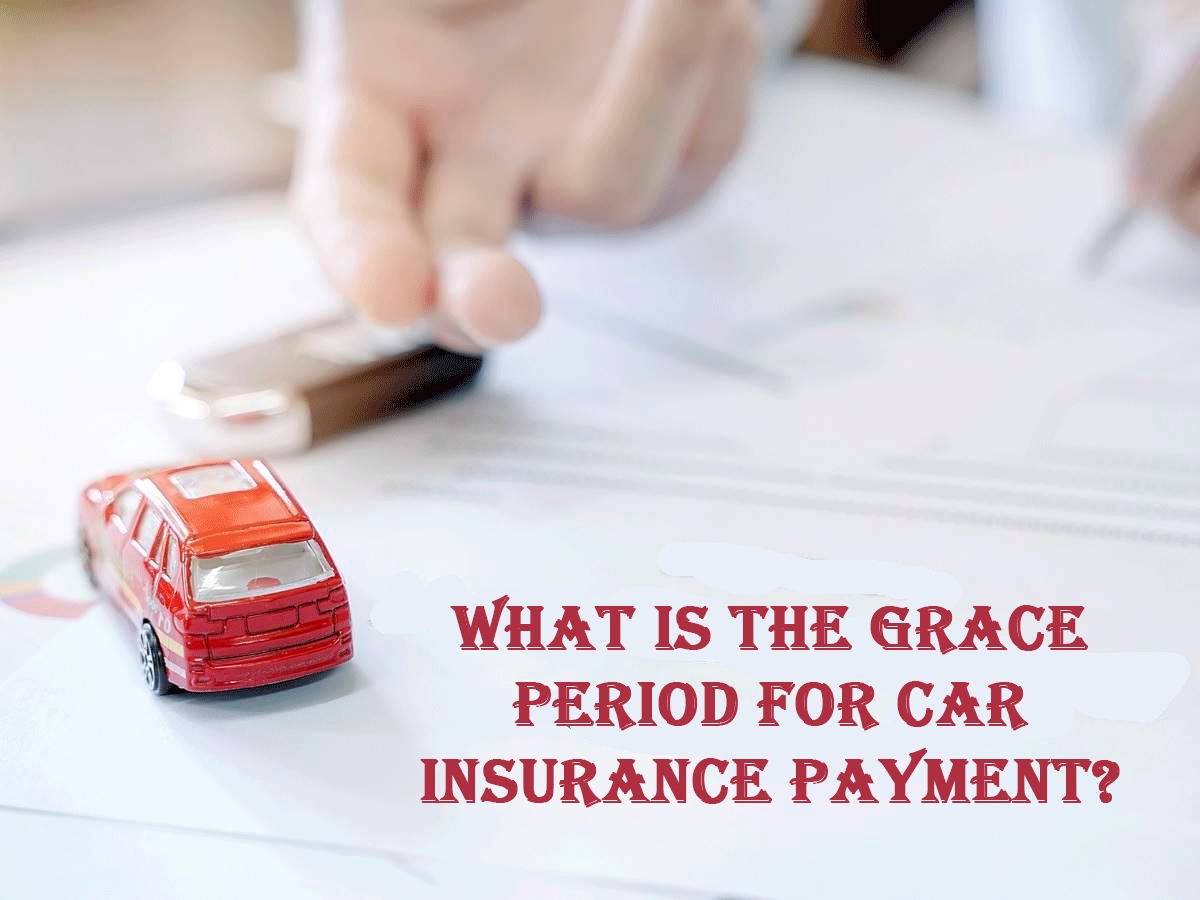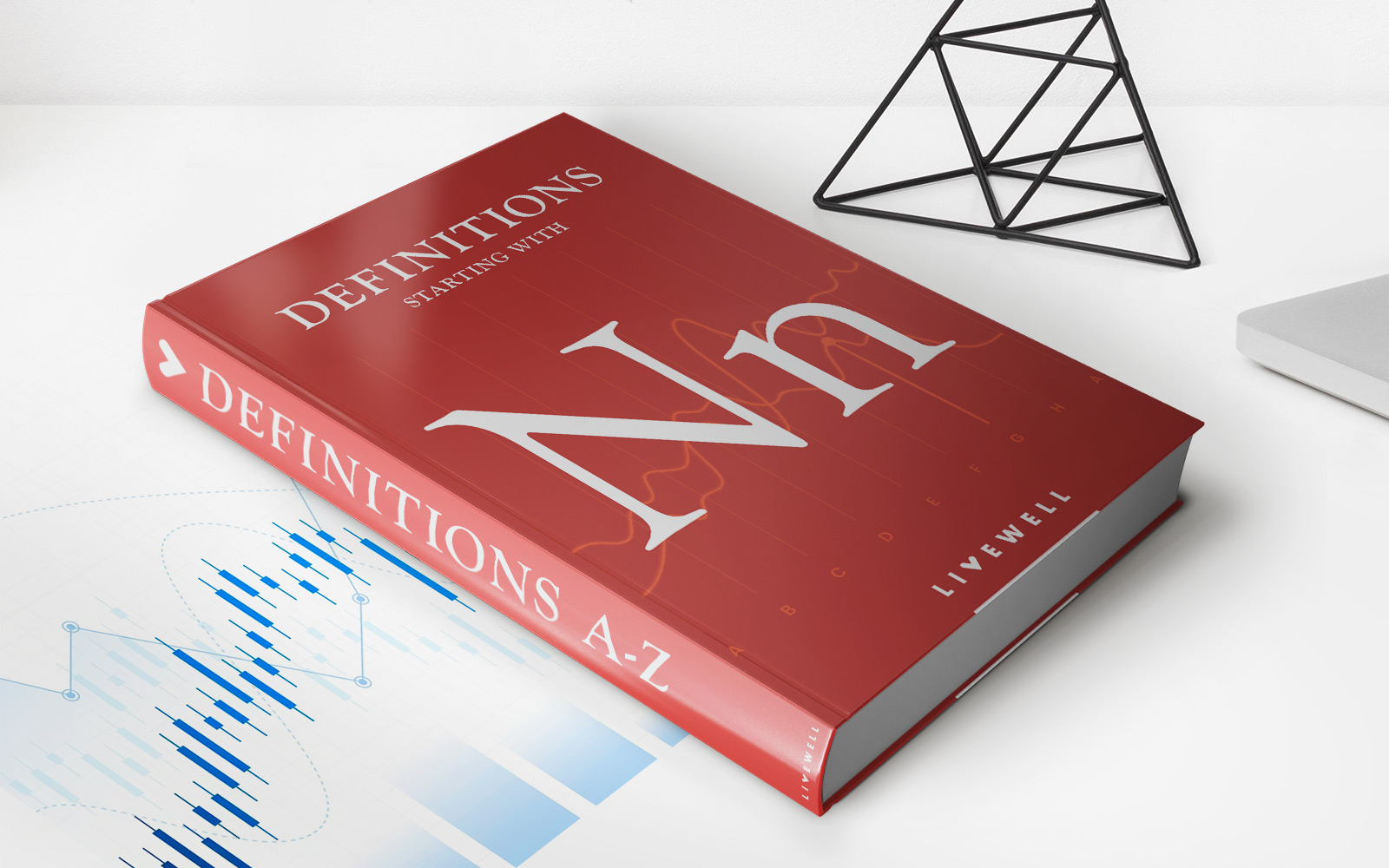Home>Finance>What Is The Grace Period On Paying Car Insurance


Finance
What Is The Grace Period On Paying Car Insurance
Published: February 21, 2024
Learn about the grace period for paying car insurance and how it impacts your finances. Understand the implications and consequences of missing insurance payments. Gain insights into managing your car insurance payments effectively.
(Many of the links in this article redirect to a specific reviewed product. Your purchase of these products through affiliate links helps to generate commission for LiveWell, at no extra cost. Learn more)
Table of Contents
**
Introduction
**
Car insurance is a critical component of responsible vehicle ownership. It provides financial protection in the event of accidents, theft, or damage to your car. Understanding the nuances of car insurance, including the grace period for payments, is essential for every policyholder. The grace period is the additional time granted by insurance companies for policyholders to make their premium payments after the due date has passed. This period is a valuable buffer that can prevent policy cancellations and potential lapses in coverage.
During the grace period, the policy remains in force, allowing the policyholder to make the overdue payment without facing immediate consequences. However, it's crucial to comprehend the specifics of the grace period associated with car insurance policies, as they can vary among insurance providers and states. By gaining insight into the grace period and its implications, policyholders can make informed decisions and avoid potential pitfalls associated with missed payments.
In this article, we will delve into the concept of grace periods in car insurance, highlighting their significance and the potential repercussions of missing the payment deadline. Additionally, we will explore strategies for avoiding missed payments and navigating the complexities of car insurance grace periods. Understanding these aspects will empower policyholders to effectively manage their car insurance obligations and maintain continuous coverage to safeguard their vehicles and financial well-being.
As we navigate through the intricacies of grace periods in car insurance, it's important to recognize their role in ensuring the stability and reliability of insurance coverage for vehicle owners. Let's embark on this insightful journey to gain a comprehensive understanding of grace periods and their impact on car insurance.
**
Understanding Grace Periods
**
A grace period in the context of car insurance refers to the additional time provided by insurance companies for policyholders to submit their premium payments after the due date has passed. This period serves as a buffer, allowing policyholders to make late payments without facing immediate repercussions such as policy cancellation or coverage termination. While the specific duration of the grace period can vary, it typically ranges from a few days to a month, depending on the insurance provider and the terms outlined in the policy.
It’s important to note that the grace period does not alter the original due date of the premium payment. Instead, it offers a brief extension to accommodate unforeseen circumstances or financial constraints that may have prevented the policyholder from making the payment on time. During this grace period, the insurance policy remains in effect, providing coverage for the policyholder and their vehicle.
Policyholders should be mindful of the terms and conditions associated with the grace period outlined in their car insurance policy. Understanding the specifics, such as the duration of the grace period and any associated fees or penalties, is crucial for making informed decisions regarding late payments. Additionally, some insurance providers may offer options for policyholders to set up automatic payments or utilize electronic funds transfer to mitigate the risk of missing payment deadlines.
By comprehending the concept of grace periods in car insurance, policyholders can navigate the intricacies of premium payments with greater confidence. This understanding empowers them to leverage the grace period effectively, ensuring that their insurance coverage remains uninterrupted even in the event of delayed payments. As we delve deeper into the significance of grace periods, we will uncover their pivotal role in maintaining the stability and continuity of car insurance coverage for policyholders.
Importance of Grace Periods in Car Insurance
Grace periods play a pivotal role in the realm of car insurance, offering significant benefits to policyholders and insurance providers alike. These extensions provide a valuable safety net, mitigating the immediate consequences of missed premium payments and safeguarding the continuity of insurance coverage for vehicles. Understanding the importance of grace periods in car insurance is instrumental in appreciating their role in promoting financial security and stability for policyholders.
One of the primary advantages of grace periods is their ability to prevent sudden lapses in insurance coverage. In scenarios where policyholders encounter unexpected financial challenges or logistical hurdles that hinder timely premium payments, the grace period offers a crucial window of opportunity to rectify the situation. Without this buffer, missed payments could lead to immediate policy cancellations, leaving vehicles vulnerable to potential risks without the protective shield of insurance coverage.
Moreover, grace periods contribute to fostering a sense of flexibility and understanding within the insurance landscape. They acknowledge the reality that individuals may encounter temporary setbacks or oversights that disrupt their payment schedules. By providing an additional window for payments, insurance companies demonstrate a commitment to supporting their policyholders during challenging times, thereby strengthening the overall relationship between insurers and insured individuals.
For policyholders, the importance of grace periods extends beyond the immediate relief from missed payment repercussions. These extensions offer peace of mind, knowing that even if a payment is delayed, the insurance coverage for their vehicle remains intact during the grace period. This assurance is invaluable, especially in situations where unforeseen circumstances have temporarily impacted the ability to meet financial obligations.
Furthermore, grace periods align with the principles of responsible financial management and planning. They recognize that individuals may encounter occasional disruptions in their cash flow or face unexpected expenses, allowing for a reasonable timeframe to address the overdue payment without facing severe penalties or coverage interruptions.
As we delve deeper into the significance of grace periods in car insurance, it becomes evident that these extensions serve as a cornerstone of support, resilience, and reliability within the insurance framework. Their importance transcends mere timelines and due dates, embodying a commitment to ensuring the continuous protection and security of vehicles for policyholders.
Consequences of Missing the Grace Period
While grace periods offer a temporary reprieve for late premium payments, missing the extended deadline can lead to a range of significant consequences for car insurance policyholders. Understanding these repercussions is crucial for appreciating the potential impact of delayed payments and the importance of timely adherence to the grace period.
One of the immediate consequences of missing the grace period is the risk of policy cancellation. If the overdue premium payment is not submitted within the grace period, the insurance company may proceed with canceling the policy, resulting in the loss of coverage for the vehicle. This can leave the policyholder vulnerable to financial liabilities and risks associated with accidents, damages, or theft, as the protective shield of insurance is no longer in place.
Additionally, the absence of insurance coverage due to missed grace period payments can have legal implications. Operating a vehicle without the required insurance coverage is not only risky but may also lead to legal penalties and fines. In some jurisdictions, driving without insurance can result in severe consequences, including license suspension, vehicle impoundment, and legal liabilities in the event of accidents.
Moreover, the impact of missing the grace period extends beyond immediate coverage issues. It can also have long-term financial repercussions, as policyholders may face challenges in securing affordable insurance in the future. Lapses in coverage due to missed payments can result in higher premiums and reduced options when seeking new insurance policies, as insurers may perceive the policyholder as a higher risk.
Furthermore, missed grace period payments can negatively impact the policyholder’s credit score. Late or missed payments, especially for essential financial obligations such as car insurance, can reflect poorly on the individual’s credit history, potentially affecting their ability to secure loans, mortgages, or favorable interest rates in the future.
Understanding the consequences of missing the grace period underscores the critical importance of prioritizing timely premium payments and leveraging the grace period as a temporary solution rather than a prolonged extension. By recognizing the potential pitfalls associated with delayed payments, policyholders can take proactive measures to avoid these repercussions and maintain the stability and continuity of their car insurance coverage.
How to Avoid Missing the Grace Period
Preventing the risk of missing the grace period for car insurance payments requires proactive planning and effective financial management. By implementing practical strategies and leveraging available resources, policyholders can mitigate the likelihood of late payments and ensure the seamless adherence to payment deadlines. Here are essential steps to avoid missing the grace period and maintain uninterrupted car insurance coverage:
- Set Up Reminders: Utilize digital calendars, smartphone apps, or email reminders to mark the due date for premium payments. Setting up recurring alerts well in advance of the deadline can serve as a proactive prompt to initiate the payment process.
- Opt for Automatic Payments: Many insurance providers offer the option to set up automatic payments, allowing premiums to be deducted directly from a designated bank account. This automated approach can eliminate the risk of overlooking payment deadlines and streamline the payment process.
- Review Payment Options: Explore flexible payment options offered by insurance companies, such as the ability to adjust the payment date or select alternative payment frequencies that align with your financial schedule.
- Monitor Financial Resources: Regularly assess your financial resources and obligations to ensure that sufficient funds are allocated for insurance premium payments. Consider creating a dedicated budget category for insurance expenses to prioritize timely payments.
- Seek Financial Assistance if Needed: In cases of temporary financial hardship, communicate with the insurance provider to explore potential solutions or assistance programs that can offer support during challenging periods.
- Understand Grace Period Terms: Familiarize yourself with the specific details of the grace period outlined in your car insurance policy. Be aware of the duration of the grace period, any associated fees, and the actions required to rectify missed payments within this timeframe.
By incorporating these proactive measures into your financial management practices, you can significantly reduce the risk of missing the grace period for car insurance payments. These strategies empower policyholders to maintain control over their payment schedules and uphold the continuity of insurance coverage for their vehicles.
Conclusion
Grace periods in car insurance serve as a fundamental safeguard, offering policyholders a vital opportunity to address delayed premium payments without immediate repercussions. Understanding the intricacies of grace periods, including their duration, implications, and proactive management, is essential for maintaining the stability and continuity of insurance coverage for vehicles.
By recognizing the significance of grace periods and the potential consequences of missing the extended payment deadline, policyholders can navigate their car insurance obligations with confidence and responsibility. The importance of leveraging practical strategies to avoid missing the grace period cannot be overstated, as it directly contributes to the seamless and uninterrupted protection of vehicles through continuous insurance coverage.
As we reflect on the role of grace periods in car insurance, it becomes evident that these extensions embody the principles of flexibility, support, and resilience within the insurance landscape. They offer a critical buffer, acknowledging the occasional challenges and unforeseen circumstances that may impact payment schedules while safeguarding the essential coverage provided by car insurance policies.
Ultimately, by prioritizing timely premium payments, setting up proactive reminders, and exploring available payment options, policyholders can proactively avoid missing the grace period and uphold the integrity of their car insurance coverage. This proactive approach not only fosters financial stability and responsible management but also strengthens the relationship between policyholders and insurance providers, fostering a sense of mutual understanding and support.
As we navigate the realm of car insurance, the awareness and effective utilization of grace periods emerge as a cornerstone of reliability, security, and peace of mind for vehicle owners. By embracing these principles and strategies, policyholders can ensure that their insurance coverage remains steadfast, providing the necessary protection for their vehicles and financial well-being.
In conclusion, the proactive management of grace periods in car insurance underscores the commitment to responsible ownership and financial prudence, ensuring that vehicles are shielded by continuous insurance coverage, even in the face of temporary payment challenges.














